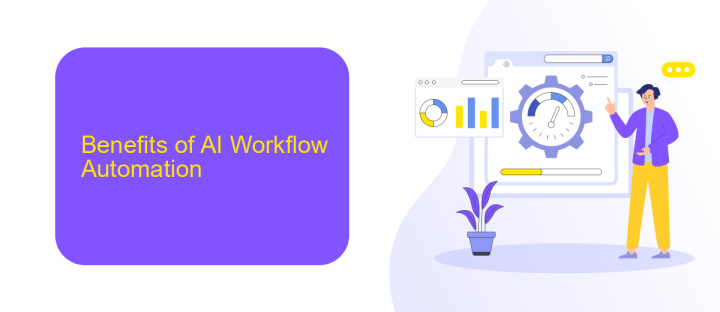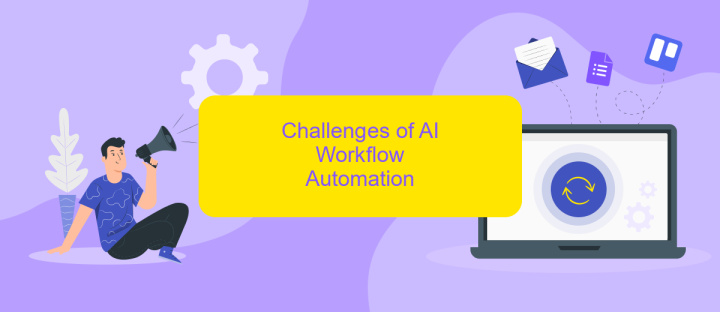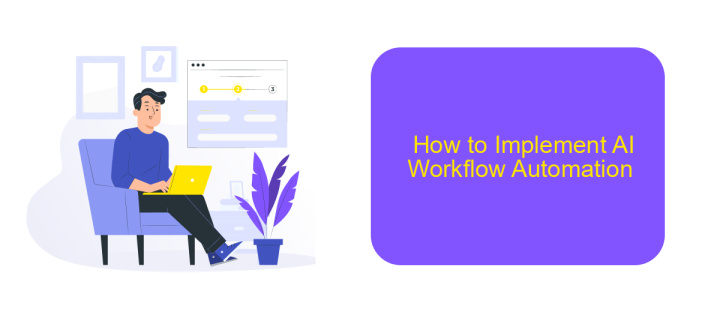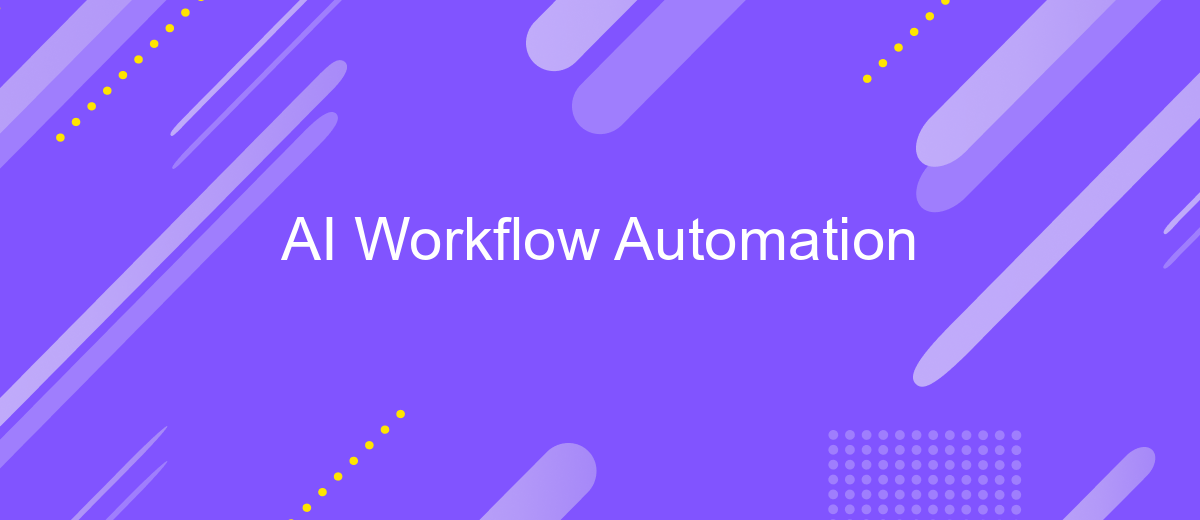AI Workflow Automation
In today's fast-paced digital landscape, AI workflow automation is revolutionizing how businesses operate, streamlining processes, and enhancing productivity. By leveraging advanced algorithms and machine learning, organizations can automate repetitive tasks, reduce human error, and focus on strategic initiatives. This article explores the transformative impact of AI-driven automation on modern workflows and its potential to reshape the future of work.
Introduction
AI Workflow Automation is revolutionizing how businesses operate by streamlining processes, reducing human error, and increasing efficiency. With the rapid advancements in artificial intelligence, companies can now automate complex workflows that previously required significant manual intervention. This transformation is not only saving time but also allowing employees to focus on more strategic tasks.
- Enhanced productivity through automated repetitive tasks
- Improved accuracy and reduced human error
- Scalability of operations without proportional increase in resources
- Better allocation of human resources to strategic activities
One of the key components of successful AI workflow automation is the integration of various tools and platforms. Services like ApiX-Drive facilitate this integration by providing a seamless interface to connect different applications and automate data transfer between them. This not only simplifies the setup process but also ensures that all systems work harmoniously, further enhancing operational efficiency.
Benefits of AI Workflow Automation

AI Workflow Automation offers numerous benefits, primarily in enhancing efficiency and reducing human error. By automating repetitive tasks, businesses can save significant time, allowing employees to focus on more strategic activities. This not only boosts productivity but also improves overall job satisfaction as mundane tasks are minimized. Additionally, AI-driven automation ensures consistency and accuracy, which is crucial for maintaining high-quality standards across various processes.
Another key advantage is the seamless integration of different systems and tools. Services like ApiX-Drive facilitate the easy setup of integrations, enabling data to flow smoothly between various applications. This connectivity helps in creating a unified workflow, eliminating the need for manual data entry and reducing the risk of errors. Furthermore, AI can provide valuable insights by analyzing data in real-time, helping businesses make informed decisions quickly. Overall, AI Workflow Automation is a powerful tool that drives operational excellence and fosters innovation.
Challenges of AI Workflow Automation

AI workflow automation offers significant benefits, but it comes with its own set of challenges. One of the primary issues is the complexity involved in setting up and maintaining automated processes. Ensuring that AI systems integrate seamlessly with existing workflows often requires specialized knowledge and extensive customization.
- Data Quality: Poor data quality can severely impact the effectiveness of AI automation, leading to inaccurate outputs and inefficiencies.
- Integration: Integrating AI tools with various software systems can be challenging. Services like ApiX-Drive can simplify this process by providing easy-to-use integration solutions.
- Scalability: As businesses grow, scaling AI solutions to meet increased demand can be difficult without significant investments in infrastructure.
- Security: Ensuring the security of automated workflows is crucial, as vulnerabilities can lead to data breaches and other security issues.
- Human Oversight: Despite automation, human oversight is necessary to monitor and fine-tune AI systems to ensure optimal performance.
Addressing these challenges requires a strategic approach that includes investing in high-quality data, leveraging integration platforms like ApiX-Drive, and maintaining robust security protocols. Additionally, continuous monitoring and human oversight are essential to adapt and optimize AI workflows effectively.
How to Implement AI Workflow Automation

Implementing AI workflow automation begins with identifying repetitive tasks that can benefit from automation. Start by analyzing your current workflows to pinpoint areas where AI can improve efficiency and reduce manual labor. This initial assessment is crucial to determine the scope and scale of automation required.
Next, choose the right AI tools and platforms that align with your business needs. Consider factors such as ease of integration, scalability, and support for various data sources. Platforms like ApiX-Drive can simplify the process by offering seamless integration with multiple applications and services, ensuring a smooth transition to automated workflows.
- Identify repetitive tasks suitable for automation
- Select appropriate AI tools and platforms
- Integrate AI solutions with existing systems
- Monitor and optimize automated workflows
After selecting the tools, integrate them with your existing systems. Use platforms like ApiX-Drive to facilitate this integration, ensuring data flows smoothly between applications. Finally, continuously monitor and optimize your automated workflows to adapt to changing business needs and maximize efficiency.
Conclusion
AI workflow automation represents a transformative shift in how businesses operate, offering unprecedented efficiency and accuracy. By automating repetitive tasks, organizations can allocate resources to more strategic initiatives, enhancing overall productivity. The integration of AI tools into existing workflows not only reduces human error but also accelerates decision-making processes, providing a competitive edge in today's fast-paced market.
To fully leverage the benefits of AI workflow automation, seamless integration is crucial. Services like ApiX-Drive facilitate this by enabling easy connectivity between various applications and systems. ApiX-Drive's user-friendly interface and robust features ensure that even those with minimal technical expertise can set up and manage integrations effectively. As AI continues to evolve, the ability to effortlessly integrate these advancements into business processes will be key to maintaining agility and driving innovation.
FAQ
What is AI Workflow Automation?
How can AI Workflow Automation benefit my business?
What types of tasks can be automated using AI?
How do I integrate AI Workflow Automation into my existing systems?
Is AI Workflow Automation secure?
Routine tasks take a lot of time from employees? Do they burn out, do not have enough working day for the main duties and important things? Do you understand that the only way out of this situation in modern realities is automation? Try Apix-Drive for free and make sure that the online connector in 5 minutes of setting up integration will remove a significant part of the routine from your life and free up time for you and your employees.

